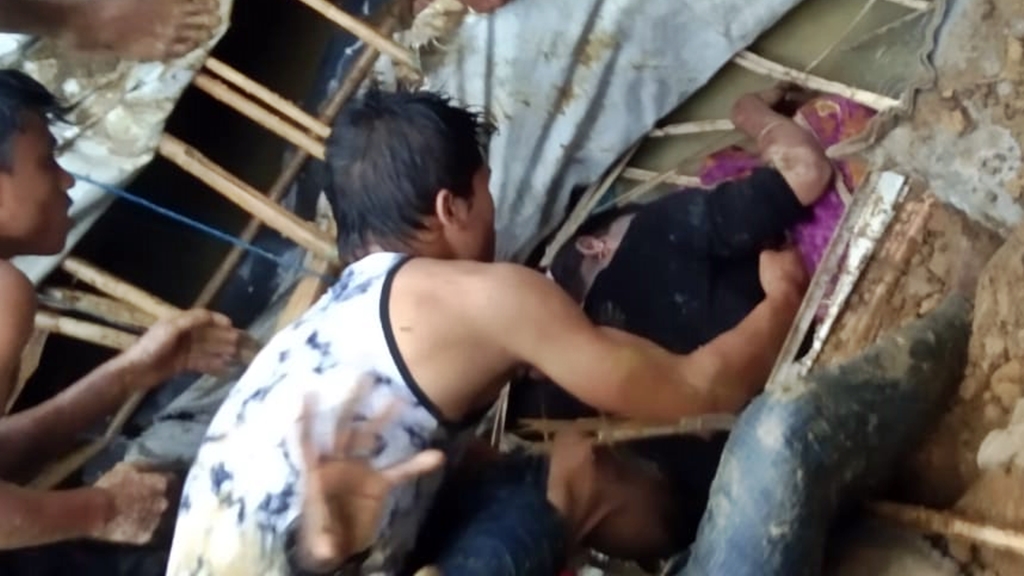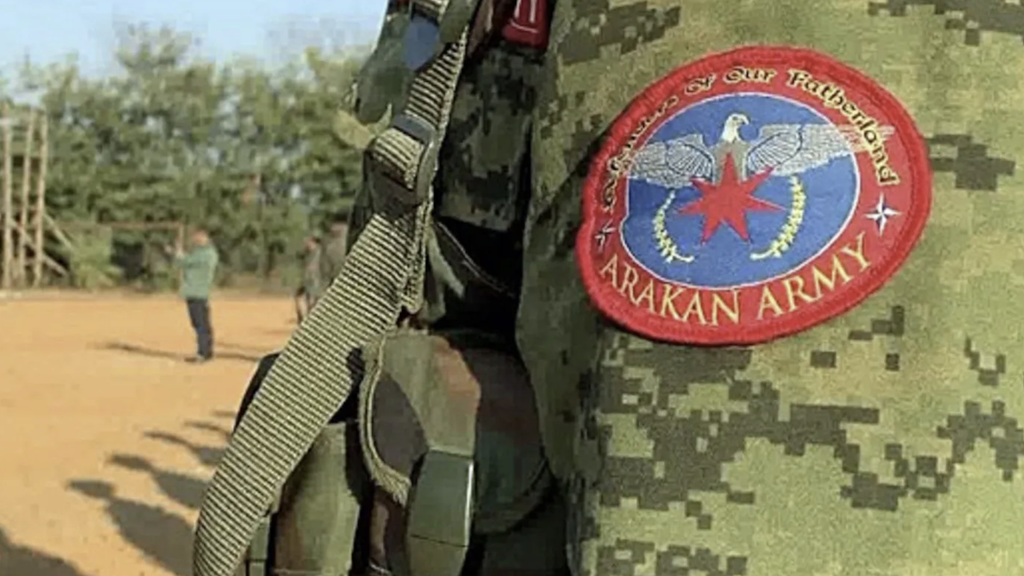
Rohingya Refugees Killed in two fatal landslides in Bangladesh refugee camps
- 05/06/2021
- 0
By Mohammed Rafique, The Rohingya Post
As monsoon season strikes, fatalities highlight desperate calls to protect hundreds of thousands of Rohingya refugees who live on the edge of unstable, unprotected and treacherous slopes in refugee camps
On Saturday, two Rohingya refugees, a man and a woman, have been buried alive in two separate landslides in Balukhali and Chakmarkul refugee camps.
The first landslide took place in Block J7 of Balukhali 2 Camp 12 at 10:12 AM local time. The slope on which the shelter was built, collapsed burying Rohim Ullah, aged 32, son of Oji Ahmed, under the earth.
21-year-old Nur Hasina, wife of Shaker Ahmed was also crushed to death in another landslide in Block A, Camp 21, Chakmarkul at 2:25 PM. She was buried along with her flimsy bamboo shelter.
Rohingya refugees in both camps struggled to dig and recover the bodies of Rohim Ullah and Nur Hasina who have been killed within four hours of two separate fatal landslides.
Monsoon season which occurs from June to October in Bangladesh, remains a constant fear for Rohingya refugees – newly arrived during the Myanmar genocidal campaigns in 2016 and 2017 and as well as the Rohingya refugees who fled during Myanmar Military’s “Operation Clean Nation” in 1991-2.
Although the government of Bangladesh in coordination with local and international NGOs has taken steps to protect slopes in some refugee camps from collapsing during monsoon seasons, the vast majority of refugee camps are still unprotected from possible fatal landslides like today’s incidents.
There are also desperate calls from Rohingya refugees who live on the edge of unstable, unprotected, and treacherous slopes, to protect the refugees and implement alert systems, relocation and rehabilitation programmes during the monsoon seasons.
“Landslides are not new in refugee camps. Unfortunately, our voices have fallen to deaf ears whenever we raise the seriousness of landslides. There are no concrete plans or steps from either the government of Bangladesh or NGOs operating in Rohingya refugee camps,” stressed Mohammed Arafat Uddin, a Rohingya grassroots activist from Balukhali Refugee Camp.
“Every year many Rohingya refugees, particularly children and elderly lost their lives in preventable landslides. More innocent lives will be lost if we continue to ignore the importance of protecting families whose shelters are prone to landslides,” he continued.
Nearly a million Rohingya refugees are taking shelters, mostly in once-forested hills with no strong soil or vegetable to prevent landslides in the flood-and-cyclone-prone Cox’s Bazar region.






